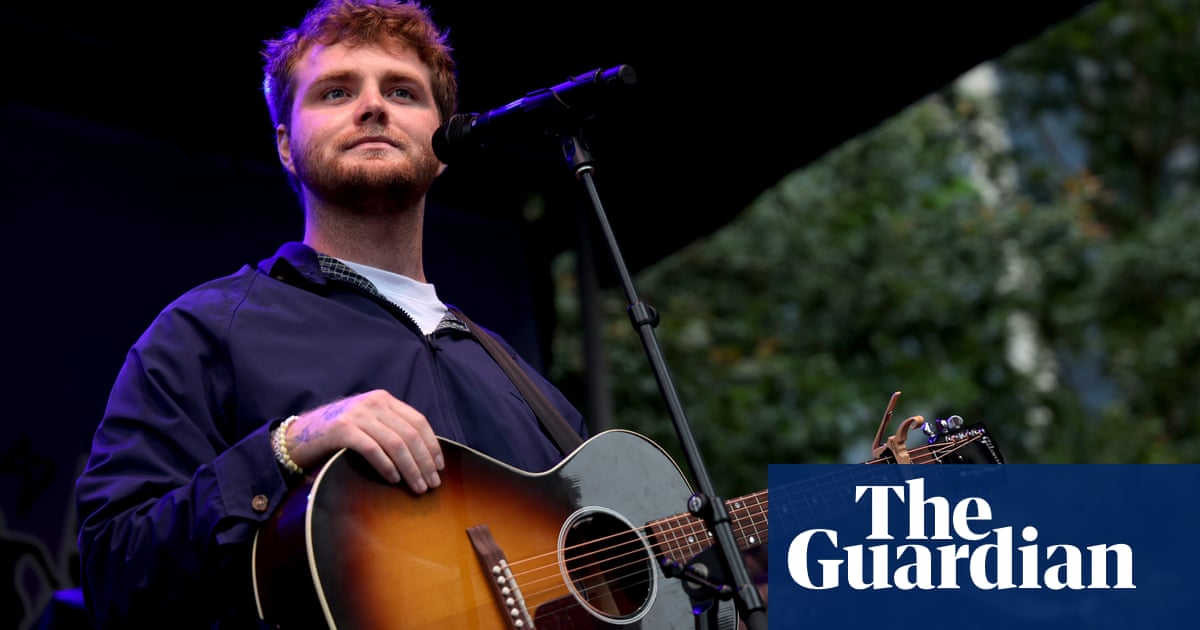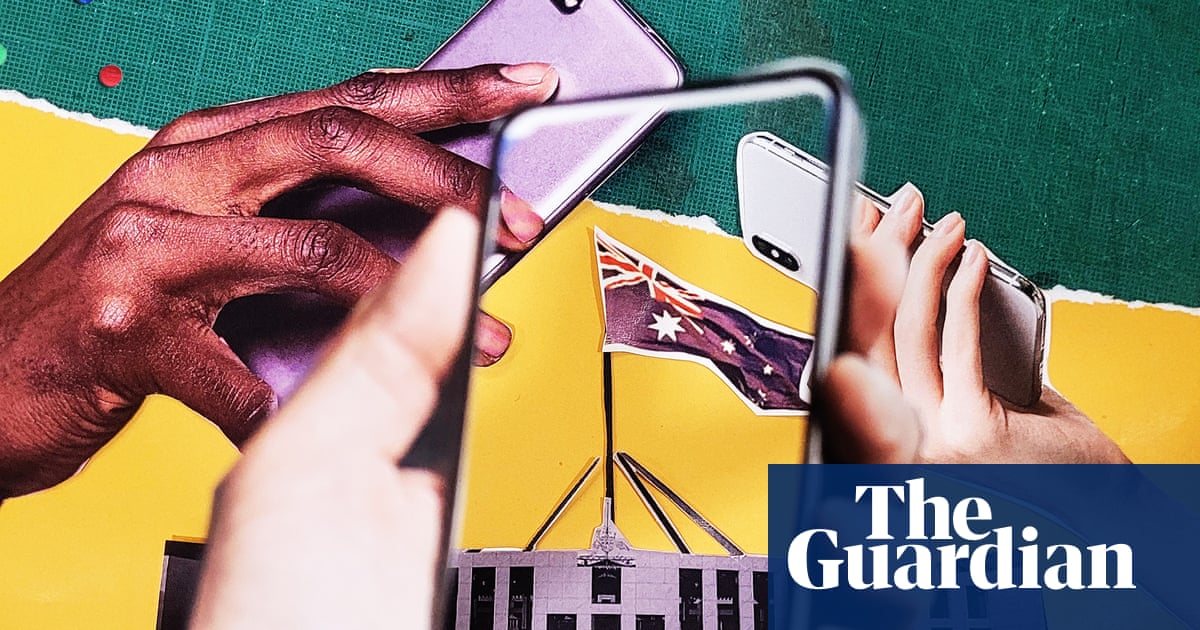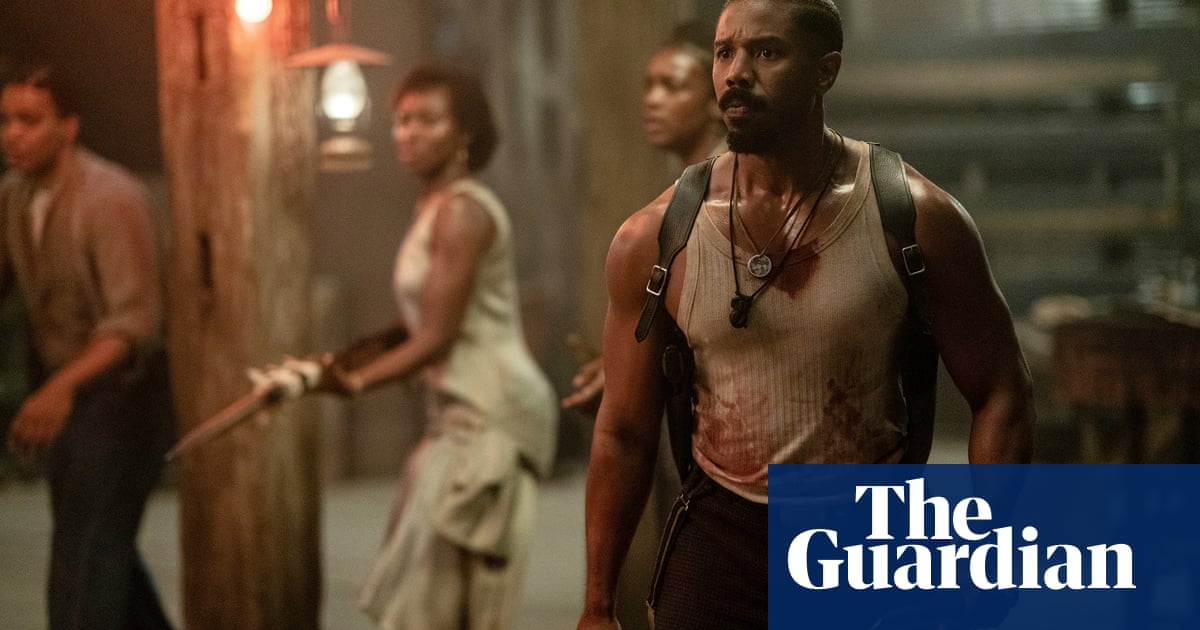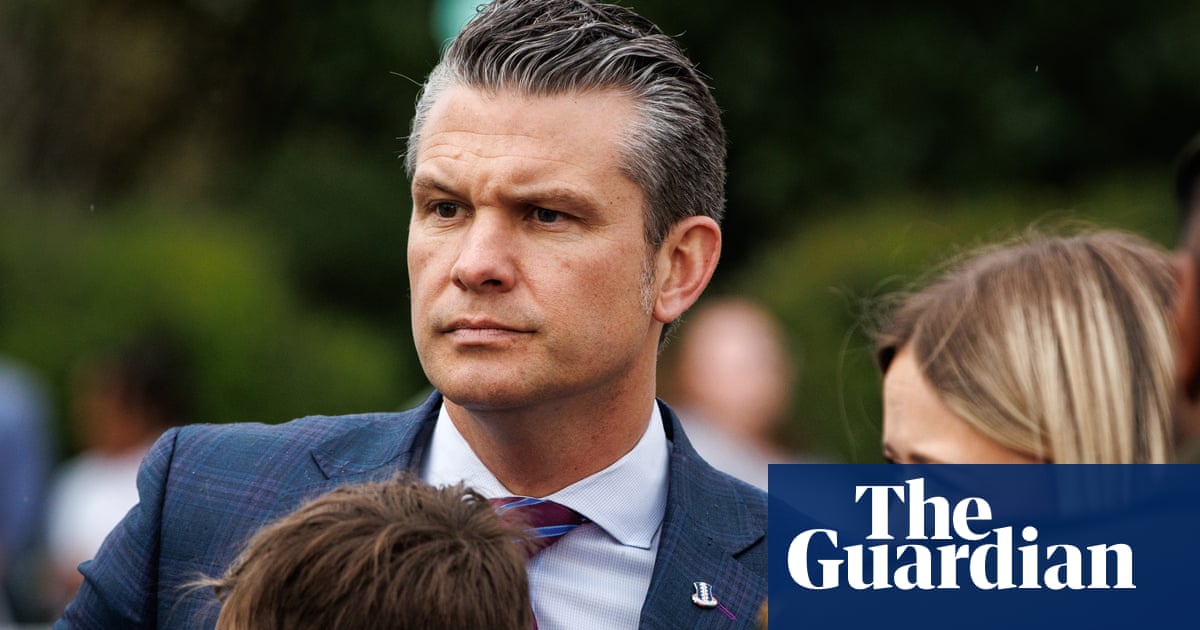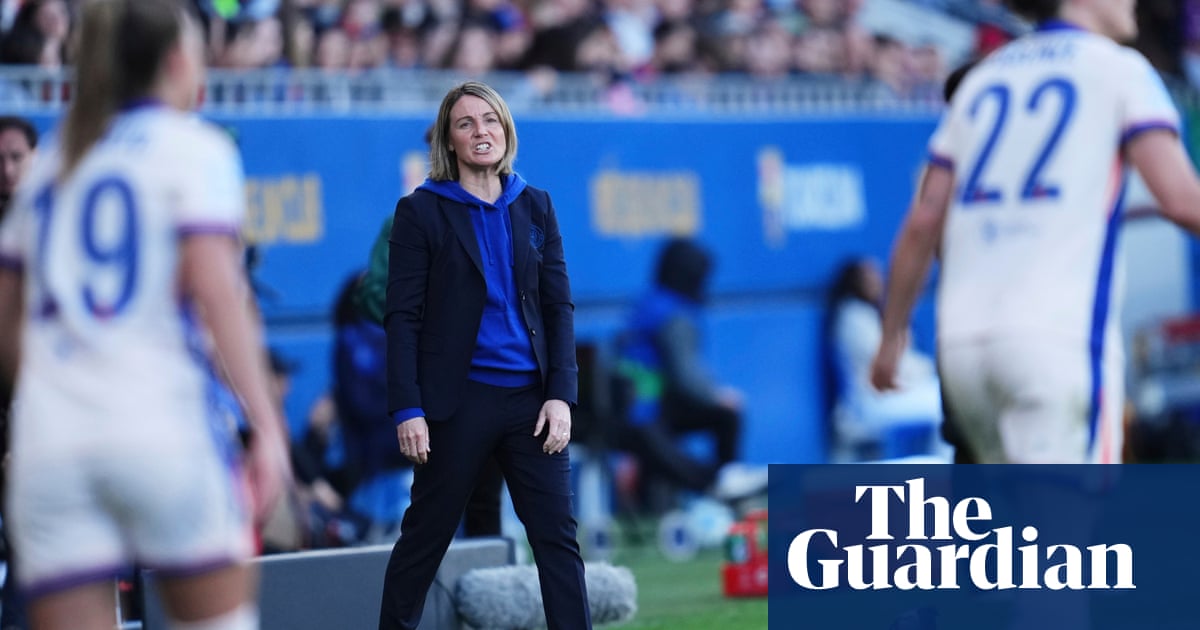In her living room in south London, Emma-Jean Thackray triumphantly opens the gatefold sleeve of her new album, Weirdo, to reveal the liner notes inside. It’s a dizzying index containing the brass the UK jazz star is known for – trumpet, as well as flugelhorn, trombone and euphonium – along with vocals, guitar, drums, keys, production, mixing and art direction. Her name appears 123 times.
“I thought it was funny, my name listed over and over,” she says. Similarly, in the video for new song Wanna Die, Thackray plays every member of her band, introduced – in a send-up of the infamous Fast Show sketch Jazz Club – by a turtlenecked Gilles Peterson, her label boss. But Wanna Die is about deep depression, and the multiple Thackrays are a serious statement of intent. The album, she says, “is about survival. If I hadn’t made this record, I would not be here.”
The West Yorkshire-born bandleader, 36, is often boxed in as “London-based trumpet player Emma-Jean Thackray,” she says with gentle defiance. “That annoys the fuck out of me, it feels reductive.” In actuality, she’s inspired as much by Madlib as she is Miles Davis; she’s a producer and musical polymath who uses the “jazz language” as a basis for her eclectic multiverse of broken beat, P-funk, spiritual jazz, hip-hop and beyond. Her 2016 debut EP, Walrus, signalled her unique grasp of groove, its rhythms intricately constructed from layers of brass and percussion. By the time she released her debut album Yellow in 2021, she had refined her complex arrangements into a cosmic jazz-funk sound that was ambitious yet jocular – referencing, as Sun Ra did, spiritual transcendence along with astronomy and weed.
Yellow won a Jazz FM award and topped the UK jazz chart, and Thackray often gets grouped with the young London jazz explosion of recent years. But despite having studied at Trinity Laban Conservatoire with many of the capital’s current players, including Moses Boyd and Nubya Garcia, she’s “always felt like I’ve been doing something different. I guess it is jazz. I guess I do live in London. I may know them, I may have even played on some stuff with them. But I’m not in the gang.
“Every situation I’ve been in, I’ve felt as if I’ve not fitted in,” she says, including the brass bands she grew up playing cornet with, before she graduated to trumpet in her early teens. “I’d be like: I’ve done this arrangement of this 80s pop song that I think would be great to do! And then everyone’s like: ‘Why would we want to do that? We’re a brass band’.”
Growing up, “I was a complete outsider. When I was a child, I didn’t know that I was neurodiverse.” She’s not spoken about it much until recently, but Thackray is autistic and has ADHD. “I was constantly confused, thinking that everyone had been given a rulebook that I hadn’t been given,” she continues. “I’ve had the word ‘weirdo’ thrust upon me, as an insult. So I’ve tried to reclaim it now and to be proud; it makes my art different from anyone else’s.”
Thackray started writing second album Weirdo in 2022 as an exploration of her neurodivergence, and a way of “embracing difficult mental health” after tour burnout. But its themes took a devastating turn the following year when, she says, “my life fell apart”.

In January 2023, Thackray’s partner of 12 years, the musician known as Pie Eye Collective, died suddenly of natural causes. She details the desperate lows she reached with piercing directness on songs like Save Me (“I’m not whole any more / Broken pieces on the floor”), and, more playfully, the George Clinton-channelling Black Hole, featuring the comedian-musician Reggie Watts (“I’m in a black hole of despair / Only the beat can pull me out”). The songs are like a grief diary, she says. “I felt so lost. I didn’t know who I was any more.”
Thackray had previously believed “that there was no life and death”. She’s been a student of the east Asian philosophy of Tao since her teens – her 2020 EP Um Yang 음 양 referenced the Taoist concept of duality and harmony and she has Tao symbols tattooed on her thumbs. “For me, energy is never destroyed, it’s only transferred through people; they live on and are always a part of you. And then you’re confronted with [loss], and the anger stops the philosophising. I thought: the universe is just this cruel, horrible thing. There’s no balance, only pain.”
After “six months of doing nothing except playing Zelda and staring at the wall,” she summoned the strength to sing again, knowing that making music would be the way to “get back to myself”, to find “renewed trust in the purpose that I always had”. Weirdo was about the shift “from really not wanting to be here, and then finding my way back to music,” she says. “I’m not saying I don’t have really bad days, or weeks, months, whatever. But throughout it all, there was the want to make music. That’s the only way I can feel emotionally regulated.”
We head upstairs to her home studio, a compact room with a back wall of records, percussion instruments from around the world, and a figurine of the 90s cartoon character Daria on her desk, with whom she shares round spectacles and dry wit. “My studio is my safe space,” she says. “I can shut out all the sensory difficulties, and no one’s watching me.” Her neurodiversity is a “gift and a curse” when it comes to her attention span. “Either I’m banging my head against the wall, and I’m like, why can’t I send this email? And then sometimes I’m in the studio making music and I realise that it’s 10pm and I haven’t gone for a wee all day.”
She credits her neurodiversity for her multi-instrumentalism and voracious stylistic approach. On Weirdo, there’s scarcely any trumpet. “Having had this sort of a death and rebirth, I feel like a completely different person to before,” she says, “so picking up the trumpet feels slightly alien now.” Instead, she’s singing far more and going heavy on guitar, too. The distortion and grunge sonics echo a childhood obsession with Kurt Cobain, her “special interest for a while before Miles Davis”, as well as Radiohead.
She comes back to the Parliament-Funkadelic influence of Yellow, too, especially on Black Hole. “I love the silliness and the joy that comes with the P-Funk universe,” she says. “It’s not like free jazz; it’s Black liberation music for the masses.” Her interpretation of that sound as a white musician from Leeds, she says, “comes from love and celebration. You just have to hold that in you and know that that’s where it’s coming from. It’s never about co-opting or Columbus-ing and saying, ‘I invented this’.”

Her approach to genre, she says, is more “like that show The Three Stooges – three guys trying to get through a door frame all at once. That’s what my musical brain is like. It’s quite telling of someone that has attention difficulties.” Ordinarily that fight for space might sound clumsy or overly fussy, but Thackray has perfected the art of jazz fusion, where the fusion element can be any other sound she likes and the result is totally unique. “Hopefully people can come to think of the genre as me,” she says.
The rebirth is well under way: Thackray has just supported saxophone megastar Kamasi Washington around the UK and Europe, has a new show on Jazz FM and will embark on an in-store tour to launch Weirdo in May. “It’s been easy to write, and now it’s going to be difficult to do live,” she says, adding that she trusts her audience to be understanding, and that she hopes that “people are gonna find their own grief or struggles reflected” in the album.
On the cover, Thackray appears in glam makeup in a pink bath – a proper pop-star moment. She’d wondered: “I’m being so vulnerable in the music. How can I show that visually?” – though her mother “wasn’t best pleased”, she says. She “called me one day and was like: ‘Are you actually naked or is it all done on computers?’” With her previous releases, Thackray had “always felt that I should be anonymous. I wanted people to listen rather than look.” But Weirdo’s striking cover art is apt for an album that is “my story, my life. It’s me doing everything. I made exactly what I wanted to make, exactly the way I wanted to make it.”
Offsetting the glamour, a sinister toaster teeters on the edge of the tub. But for all its stark imagery and bleak themes, Weirdo is “about wanting to live”. The closing track, Thank You for the Day, is a classy gospel-soul bop and sublime vocal workout – Thackray’s voice at its fullest power – that underscores a feeling of hope. “That’s the message I wanted people to take,” she continues, going back to the vinyl pressing in her hands. “If you open up the record, I get out of the bath. I was in that dark place, but I made the record. And I’m still here.”
Weirdo is released via Brownswood/Polydor on 25 April

 3 hours ago
6
3 hours ago
6







